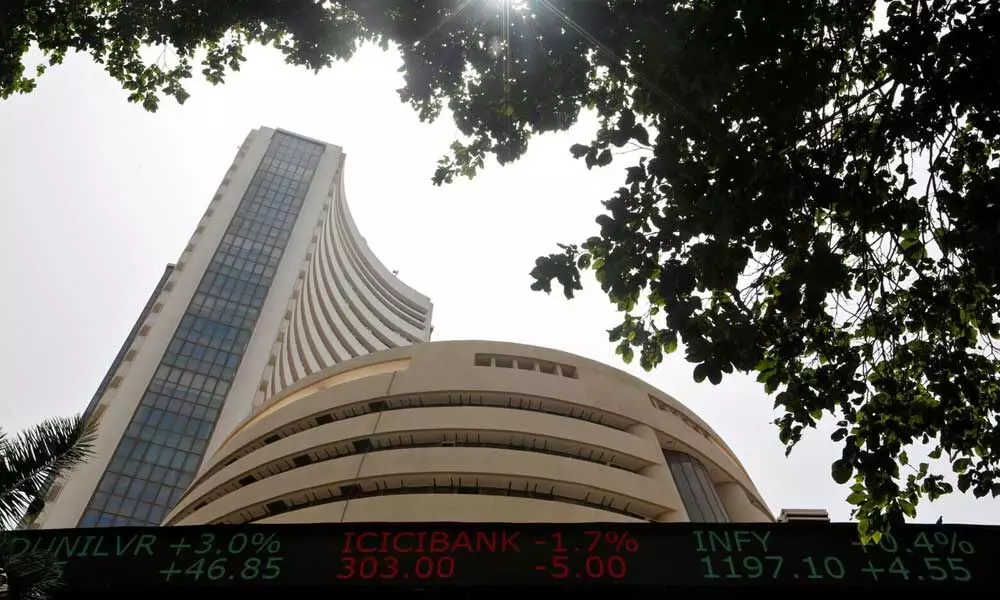Economic nosedive certain, but how long?
 representation image
representation imageA tiny virus which is not visible to naked eye has shaken the entire world. While the debate is on about how and from where the virus emanated, the entire world is now living under a sense of fear of facing sickness and possibly death.
A tiny virus which is not visible to naked eye has shaken the entire world. While the debate is on about how and from where the virus emanated, the entire world is now living under a sense of fear of facing sickness and possibly death. Some even call it as a situation which is like alien invasion. It has shaken the people and their confidence. It has also sent jitters among the world economists who feel that with each passing day, the world economy is inching towards economic catastrophe and we may be witnessing recession which would be much bigger than what was seen in the last 150 years.
Experts say the world must combat looming debt meltdown in developing countries. The endgame of the economic crisis cannot be predicted unless the public health challenge is met effectively. Unless the spread of virus is fully controlled, which it appears will take some more time, the uncertainty about socio-economic situation will continue.
While situation in China from where the virus began its global journey is limping back to normalcy, the US has failed miserably to contain the outbreak and exposed its hollowness regarding advanced health system. Unless a vaccine becomes widely available, financial wizards say, it will not be easy for the US economy to return to normal situation.
Opinions of experts from across the globe indicate that if another two percent of the global population were to die, the toll would be around 150 million. But the silver lining is that the situation is unlikely to be so serious given the global lockdown and physical distancing measures being taken up by the respective governments. If the world countries succeed in arresting this virus, economy can restart though the damage already done to the businesses and debt markets will have lingering effect as it has reached a record breaking level.
It is felt that the financial crisis would be much more severe that worldwide economic crisis of 2007-08. It may be mentioned here that the financial crisis was primarily caused by deregulation in the financial industry. That permitted banks to engage in hedge fund trading with derivatives. When the values of the derivatives crumbled, banks stopped lending to each other. That created the financial crisis that led to the Great Recession. The signs of peril have naturally raised questions about how similar the current situation is to the 2008 financial crisis, the worst economic downturn since the Great Depression.
With about four billion people — currently on lockdown or under some form of stay-at-home orders due to the coronavirus pandemic, the dive in business activity has created an economic crisis "like no other," the IMF Director warned on Friday.
"Never in the history of the IMF have we witnessed the world economy come to a standstill," Georgieva said. During the 2008 financial crisis, the global economy lost more than $2 trillion in value, a drop of nearly 4% from where it was before, according to Moody's Analytics. She described the current crisis as "humanity's darkest hour" in her lifetime, as it poses a "big threat to the whole world and it requires us to stand united."
As far as India is concerned, the crisis is going to have serious impact on Indian economy. India depends heavily on China for its imports. About 45 percent of electronic imports are from China. Similarly, substantial quantity of import of organic chemicals that India purchases from global market is from China. Even the import of fertilisers or automotive parts is to the tune of about 25 percent from China. It has also flooded the Indian market with mobile phones and has even set up manufacturing units here. About 70 percent of pharma ingredients are from China. As far as exports are concerned, China is India's third largest export partner. Several Indian companies, about 72 are in eastern part of China. The coronavirus has adversely affected IT, BPO, Airlines, tourism and other sectors in China and Indian companies work in these sectors in China. Apparently, this will have adverse impact on our economy.
According to Bloomberg, growth in the Indian economy could fall to levels not seen for decades as key sectors see a sharp decline in business during the coronavirus lockdown and a likely staggered exit from those restrictions. Goldman Sachs now forecasts that India's real GDP growth could fall to 1.6 percent in FY21 compared to its earlier projection of 3.3 percent. It further says, "The 1.6 percent growth projection assumes a strong sequential recovery. That expectation is based on three assumptions—a staggered exit from lockdowns, further stimulus from the Central and State governments and continued easing from the RBI,"
According to CII, GDP could fall below 5% in FY 2021 if policy action is not taken urgently. It is said that the government should take some strong fiscal stimulus to the extent of 1% of GDP to the poor, which would help them financially and also manage consumer demand. In the third quarter (October-December) growth is slowed down to 4.7% and the impact of COVID-19 will further be seen in the fourth quarter.
Ficci survey showed 53% of Indian businesses have indicated a marked impact of Covid-19 on business operations. And 42% of the respondents said that up to three months could take for normalcy to return.
Some argue that employment in China has rebounded somewhat, but it is far from clear when it will return to anything close to pre-Covid-19 levels. And even if Chinese manufacturing does rebound fully, who is going to buy those goods when the rest of the global economy is sinking? As for the US, returning to 70% or 80% of capacity seems like a distant dream. A deep economic slump and financial crisis are unavoidable. The key questions now are how bad the recession will be and how long it will last.














